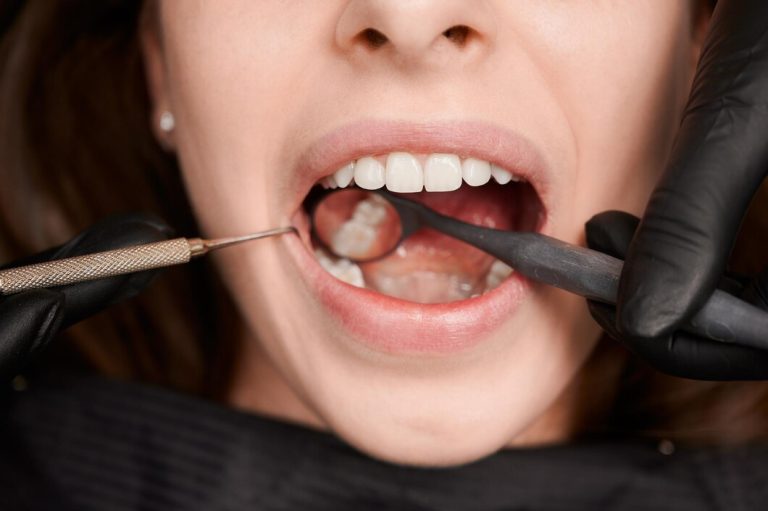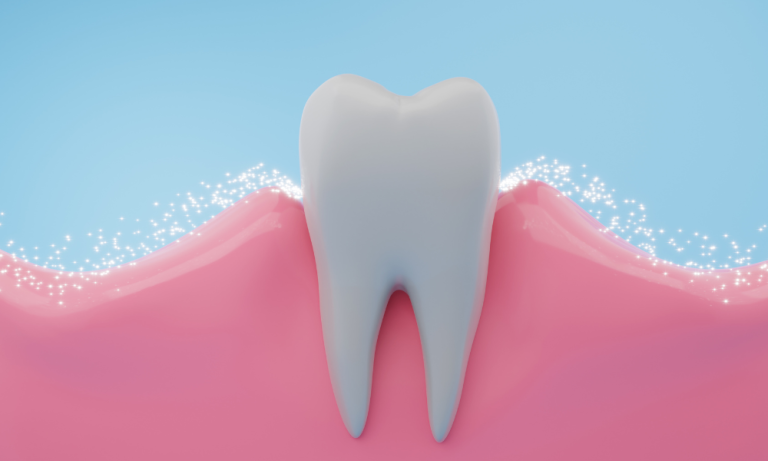Dental implants have emerged as a popular and effective solution for replacing missing teeth, offering numerous benefits, such as improved function, appearance, and overall oral health. A significant investment of time and resources goes into the dental implant process, so it’s crucial for patients to ensure their long-lasting success by committing to a meticulous oral hygiene routine.
Your oral health is our top priority. That’s why we have created this guide for dental implant patients, detailing essential oral hygiene practices to keep your implants and surrounding gums healthy, strong, and free from complications. From brushing and flossing techniques to routine dental checkups and professional cleanings, our expert team provides the information you need for the ultimate care of your dental implants.
Follow our recommendations to maintain the longevity and function of your dental implants while supporting the health of your gums and remaining natural teeth. Whether you’re a new dental implant patient or have had your implants for years, adopting these best practices will go a long way in ensuring a healthy, happy, and confident smile for years to come.
1. Essential Oral Hygiene Practices for Dental Implant Patients
Caring for dental implants involves a combination of diligent at-home practices and regular professional dental care. By adhering to the following oral hygiene essentials, you can protect your dental implants and ensure their long-term success:
– Proper Brushing: Brush your teeth, gums, and dental implants at least twice a day using a soft-bristled toothbrush and non-abrasive fluoride toothpaste. Brush gently around the implant site, ensuring that you clean the front, back, and sides of the implant crown. Electric toothbrushes with soft, round bristles can be an excellent choice for dental implant patients, as they offer efficient plaque removal, gentle cleaning, and easy maneuverability.
– Thorough Flossing: Floss at least once a day to remove plaque, food particles, and debris from between your teeth and around your dental implants. When flossing around the implant, use a non-shedding implant-specific floss or dental tape to avoid fraying and ensure effective cleaning.
– Use of Interdental Brushes or Water Flossers: In addition to dental floss, consider using interdental brushes or water flossers to clean the hard-to-reach areas around your dental implants. These tools can help prevent plaque buildup, inflammation, and potential infection of the surrounding gum tissue.
– Rinsing with an Antimicrobial Mouthwash: Using a non-alcoholic antimicrobial mouthwash daily can help control bacterial growth around your dental implants and support overall oral health.
2. Scheduling Routine Dental Visits and Cleanings
Routine dental checkups and professional cleanings play an essential role in maintaining the health, function, and longevity of dental implants. It is crucial to visit your dental professional at least twice a year, or as recommended, for the following reasons:
– Regular Assessments: Dental checkups allow professionals to monitor the condition of your dental implants, ensuring they remain stable, healthy, and functional.
– Dental Cleanings: Professional cleanings remove hard-to-reach plaque and tartar buildup, helping to prevent inflammation and gum disease around dental implants.
– Early Intervention: Regular dental visits enable early detection of any potential issues or complications related to your dental implants. Prompt intervention can help prevent further problems and keep your implants and gums in optimal condition.
3. Understanding and Managing the Risk Factors for Dental Implant Complications
While dental implants have a high success rate, it is essential to understand and manage the potential risk factors that can compromise their longevity and health:
– Gum Disease: Untreated periodontal disease can lead to peri-implantitis – gum inflammation and bone loss around the dental implant. Maintain proper oral hygiene and attend regular dental checkups to identify and treat gum disease early.
– Smoking or Tobacco Use: Smoking and tobacco use can impair healing after dental implant surgery, slow bone regeneration, and increase the risk of peri-implantitis. Consider quitting or reducing tobacco use to improve the chances of dental implant success.
– Poorly Controlled Diabetes: Uncontrolled diabetes can hinder healing, impair immune function, and increase the susceptibility to infection and gum disease. Dental implant patients with diabetes should work closely with their healthcare providers to maintain stable blood sugar levels for long-lasting implant success.
4. Knowing When to Consult Your Dental Professional
Despite following proper oral hygiene practices, dental implant patients should remain vigilant for any signs of complications or issues that may require professional intervention. Contact your dental professional if you experience any of the following symptoms around your dental implants:
– Persistent Pain or Discomfort
– Increased Redness or Swelling
– Bleeding, Pus, or Signs of Infection
– Loose Dental Implant or Implant Crown
– Unexplained Changes in Your Bite
Early detection and treatment of complications can help preserve the stability and integrity of your dental implants for a more enjoyable, confident, and worry-free smile.
Protect Your Investment in Dental Implants with Exceptional Oral Care
Embracing a dedicated oral hygiene routine for dental implant care is vital for maintaining the health, function, and longevity of your implants. By combining proper at-home care practices with regular dental checkups and specialized dental cleanings, you can ensure your implants remain strong and secure, allowing you to enjoy the benefits of a long-lasting, healthy smile.
At Colorado Gum Care Northglenn, CO, our expert dentist in Westminster, CO, is committed to helping dental implant patients maintain exceptional oral health for the best possible outcomes. Schedule a consultation with our experienced professionals today to receive personalized recommendations, expert advice, and high-quality dental care tailored to your dental implant patient needs. Experience the confidence and peace of mind that comes with having a healthy, radiant, and long-lasting smile.







